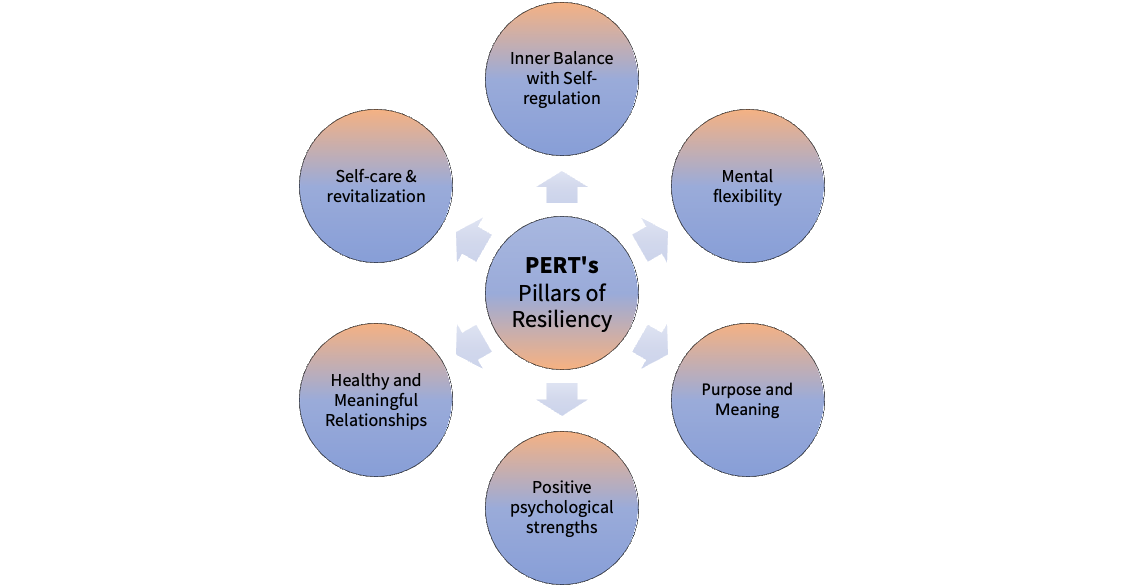6 Resiliency
“The human capacity for burden is like bamboo- far more flexible than you’d ever believe at first glance.”
~ Jodi Picoult
Resiliency
What does it mean to be resilient? The most definition we hear is some version of the ability to bounce back after adversity. Psychologists define resilience as the process of adapting well in the face of adversity, trauma, tragedy, threats, or significant sources of stress.
Many students come to college having experienced many life circumstances that have been very difficult, and these past experiences can play a role in their academic experience. And regardless of past experiences, the demands and expectations of college can be a significant source of stress.
Being able to adapt and recover from challenges, setbacks and obstacles are critical to student success, and the good news is that resilience skills can be learned and strengthened!
And when you learn and develop resiliency skills, they are able to be applied to your success in school (academic resilience), your success in your relationships and life outside of school, and in your future career. The same skills can help you succeed and thrive in all these important domains!
WATCH AND REFLECT ACTIVITY
Watch
As you watch the videos consider the following questions.
- How would you define resiliency, in your own words?
- What are some characteristics of resilient people?
- Can people learn to be more resilient?
Reflect
Now that you have watched the videos reflect on any knowledge you may have gained and answer the following questions:
- For you, what was the most profound takeaway from this video?
- What is one thing you will do differently in your life as a result of what you have learned?
Components of Resiliency
What are the components of Resiliency? According to the PERT (Psychological and Emotional Resiliency Training) Model of Resiliency created by Dr. Thomas Aubrey, there are SIX CORE COMPONENTS of resiliency. Each of these components can be developed and strengthened in your own life in order to help you be more resilient.
- Self-Regulation: ability to create a sense of calmness and safety by relaxing the body, giving it access to a state of mind and body that supports learning, nourishment, rest, and recovery.
- Mental Flexibility: ability to see things from different perspectives and consider options to change our response to increase the likelihood of success.
- Character Strengths, Purpose and Self-Direction: ability to use character strengths, virtues, skills, and aptitudes to overcome life’s challenges and find meaning and purpose to enhance motivation for the achievement of our goals.
- Positive Psychological Strengths: ability to use positive human strengths to enhance happiness and well-being.
- Social Connection and Community Building: ability to socially connect and build meaningful relationships with others to improve our health and well-being, as well as use support systems to increase the likelihood of success.
- Revitalizing Self-Care: ability to refuel depleted resources with health-conscious practices that strengthen our resiliency and energize us to achieve healthy pursuits of success.
ASSESS YOURSELF ACTIVITY
- Review the description of each of the components of resiliency. Reflect on each one, and rate yourself on a scale from 1-10 for where you think you are right now.
- A rating of 1 would indicate that this is a component that needs a lot of attention and in which you have a lot of room for growth, and a rating of 10 would indicate that this is a component that you feel you have mastered and that needs very little focus.
- Use your rating, and set resiliency goals for yourself for this semester!


